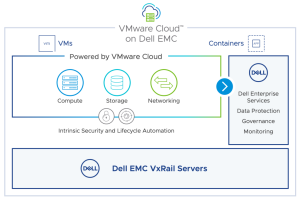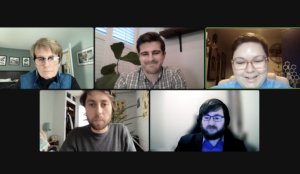
WASHINGTON, October 12, 2023 – Broadband policy experts on a Broadband Breakfast panel Wednesday agreed about the urgency of supporting the Affordable Connectivity Program, but disagreed about whether it should be incorporated into the Universal Service Fund.
The ACP, which was initially injected with $14.2 billion, has nearly half of that left and is anticipated to run out of money in early 2024, according to industry experts.
Late last month, the president and CEO of broadband association US Telecom, proposed at a subcommittee hearing that broadening the contribution base to the USF from broadband and Big Tech revenues could allow the umbrella fund to absorb the ACP – instead of the program relying solely on Congress for funding.

Some panelists at the Broadband Breakfast Live Online event, however, warned that bringing the ACP into the USF too quickly would put too much pressure on the fund, while others acknowledged the importance of broadening the revenue base of the USF, which relies on voice service provider contributions.
Jonathan Cannon, policy counsel of technology and innovation at the R Street Institute, argued that using taxpayer dollars to fund either the ACP or the USF, as opposed to relying solely on ISP contributions, might be the way forward to support low-income residents using broadband.
“If we’re talking about expanding the contribution base, then every single American taxpayer is a beneficiary of the broadband service and maybe that’s a better way to generate that revenue,” said Cannon. He was particularly enamored of the ACP because of it is “a tech neutral voucher that flows directly to the customer.”
He and other noted that the Lifeline fund telecom subsidy, which also targets supporting low-income families, only has an enrollment of almost 7 million despite being an option for decades. Despite less than two years of existence, the ACP serves almost 21 million Americans.

Deborah Lathen, president at Lathen Consulting LLC, said that in the short term, it would be better to have Congress appropriate funds for the ACP immediately, while considering USF reform in the long term.
“We’ve been talking about Universal Service reform forever, and I think if you start pulling ACP into it now, that is the quickest way that we will…not have funding,” she said.
Christopher Lewis, President at Public Knowledge urged the Federal Communications Commission, which administers both the ACP and the USF, to use its own authority to alter the USF contribution base. He said all broadband providers should contribute to the USF as a way to reform the fund and sustain the ACP.
Kirsten Compitello, national broadband digital equity director at consulting firm Michael Baker International, a sponsor of Broadband Breakfast, added that if taxpayer dollars are used to support the ACP in some manner, it is important to communicate to individuals that they are making an investment in a “community and social benefit.”
Our Broadband Breakfast Live Online events take place on Wednesday at 12 Noon ET. Watch the event on Broadband Breakfast, or REGISTER HERE to join the conversation.

Wednesday, October 11 – Will the Affordable Connectivity Program be Renewed?
The renewal of the Affordable Connectivity Program has been a subject of considerable ambiguity in recent months. There have been widespread predictions that the program, which offers $30 and $75 monthly internet discounts to low-income households, is likely to dry up in early 2024. While experts have voiced concerns the end of the ACP will spell disaster for ongoing broadband expansion efforts, Congress has yet to take any action to replenish the program. What lies ahead for the ACP and its 19 million beneficiaries across the nation? Join us to hear from experts in the field as we discuss the fate of the ACP and explore potential pathways for promoting digital inclusion in the United States.
Panelists
- Kirsten Compitello, National Broadband Digital Equity Director, Michael Baker International
- Christopher Lewis, President, Public Knowledge
- Jonathan Cannon, Policy Counsel, Technology and Innovation, R Street Institute
- Debra Lathen, President, Lathen Consulting LLC
- Drew Clark (moderator), Editor and Publisher, Broadband Breakfast

Kirsten Compitello serves as Michael Baker’s National Broadband Digital Equity Director and is an experienced Planner with a focus on public engagement, policy, community planning, and visual storytelling. She leads the development of digital navigation and equitable planning tools within Michael Baker’s broadband practice. Her recent work has included BEAD and DEA state plans, a regional broadband connectivity roadmap for PA, digital equity community engagement events, communication and advocacy guides to promote adoption and literacy, and digital navigator program development.
Christopher Lewis is President and CEO at Public Knowledge. Prior to being elevated to President and CEO, Chris served for as PK’s Vice President from 2012 to 2019 where he led the organization’s day-to-day advocacy and political strategy on Capitol Hill and at government agencies. During that time he also served as a local elected official, serving two terms on the Alexandria City Public School Board. Chris serves on the Board of Directors for the Institute for Local Self Reliance and represents Public Knowledge on the Board of the Broadband Internet Technical Advisory Group.
Jonathan Cannon is a policy counsel in technology and innovation at the R Street Institute. He researches and writes policy papers, op-eds and blog posts about significant topics related to technology and telecommunications; engages directly with leaders on key policy issue areas including ACP, net neutrality, spectrum, and broadband deployment.
Deborah Lathen, President of Lathen Consulting, LLC is the former head of the FCC Cable Services Bureau (now Media Bureau) and a seasoned communications and business attorney with vast experience and knowledge about broadband policy. In 1998 Deorah wrote the first FCC report Understanding Broadband and most recently partnered with Paul Garnett in authoring A Handbook for the Effective Administration of State and Local Digital Equity Programs.
Breakfast Media LLC CEO Drew Clark has led the Broadband Breakfast community since 2008. An early proponent of better broadband, better lives, he initially founded the Broadband Census crowdsourcing campaign for broadband data. As Editor and Publisher, Clark presides over the leading media company advocating for higher-capacity internet everywhere through topical, timely and intelligent coverage. Clark also served as head of the Partnership for a Connected Illinois, a state broadband initiative.

People watch videos with a remote control and a television multimedia box. Television console, smart set-top box.
As with all Broadband Breakfast Live Online events, the FREE webcasts will take place at 12 Noon ET on Wednesday.
SUBSCRIBE to the Broadband Breakfast YouTube channel. That way, you will be notified when events go live. Watch on YouTube, Twitter and Facebook.
See a complete list of upcoming and past Broadband Breakfast Live Online events.



